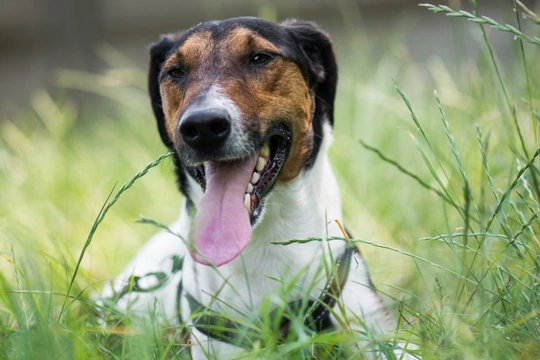
How to Treat Yard for Dog Worms & Stop Reinfection
Intestinal worms can infest a wide range of animals including cats, dogs, and humans, as well as wildlife too – and most wild animals in the UK (including rodents, foxes, rabbits and hedgehogs) have worms.
However, using a veterinary-approved worming product to treat your dog can help to eradicate any worms they might have picked up over time, and ensure that they do not become ill or have their health compromised as the result of worm infestations.
Being vigilant about worming your dog will help to keep them healthy, and prevent illnesses and other problems – but wormers are designed to treat any worms your dog has in their system at the time of dosage only, and will not protect them against picking up worms for a certain period of time after treatment, unlike most flea treatment products.
This means that your dog might theoretically pick up worms again within just a few days of treatment – and the treatment calendar for wormers is not, as many dog owners assume, an indication of how long the wormer is effective for, but rather, the optimum timescale to follow to ensure that worms don’t spread widely enough to have an impact on your dog’s health without overdoing the treatments.
It is not possible to reduce the chances of your dog picking up worms to zero, unfortunately – worms thrive in the environment in some situations, as well as within live hosts, and the eggs and larvae of intestinal worms are impossible to see with the naked eye, and adult worms themselves can be small and hard to spot too.
That said, there are a few things that you can do at the same time as you worm your dog to reduce the chances of them picking up worms again in short order after their treatment.
Read on to learn how to prevent re-infestation after worming your dog.
Worm any other pets you might have at the same time
If you own more than one dog or keep a dog with another small pet that can contract worms, it is important to worm all of them at the same time – otherwise the animal you treat might become re-infected with worms from one of your other animals within a few days of treatment.
Scoop the poop
Dog faeces spreads worms, and if the poop is left on the ground, larvae and eggs will infect the environment and quickly move on to spreading to any animals that walk over the land.
Always pick up after your dog in your garden promptly and don’t leave poop on the lawn, and if you haven’t done this for a while, do it after worming your dog.
Disinfect the grass!
Even after picking up the poop, worm eggs and larvae can remain in the soil. You can reduce their numbers by purchasing a lawn disinfectant – this is a genuine product that you add to water and use in a spray to disinfect the grass itself, without causing the grass to die off.
This won’t eradicate all of the potential nasties, or worms, but it may reduce their numbers enough to reduce the risk to your dog.
Avoid public land with a lot of dogs and poop
If you walk your dog in a dog park or across public land where a lot of other dogs walk too, you increase the risk of your own dog picking up worms, particularly if other owners aren’t vigilant about cleaning up after their dogs.
Try to avoid walking your dog in areas where a lot of dogs poop, and the poop is not cleaned up.
Disinfect any toys
Hot wash or thoroughly disinfect all of your dog’s toys when you worm them, including outdoor toys that might be on your lawn and food and water bowls too. Try to avoid sharing your dog’s toys with other dogs that don’t live with you in the future, and take your own water bowl out with you to avoid the need for your dog to use a communal bowl.
Wash bedding and soft furniture
Hot wash your dog’s bedding, blankets, and any soft furnishings they use too, and sanitize or use bleach to clean hard surfaces.
Prevent hunting or scavenging
Hunting wildlife, scavenging for roadkill or rolling in poop or the carcasses of dead wildlife like foxes will all increase the risk of your dog picking up worms, so take steps to keep this from happening.
This may mean muzzling your dog to stop them from eating things they shouldn’t have, or keeping them on an extended lead instead of running freely in areas that you can’t control.
Don’t give your dog raw meat
Unless you feed your dog using the BARF protocol and are vigilant about ensuring that raw meat is stored, handled and fed safely, don’t be tempted to give your dog scraps of raw or improperly cooked or stored meat, as these can spread worms.
Wipe your dog’s feet after walks
Finally, if you can wipe your dog’s feet over with antibacterial wipes after they come back in from a walk, this will also reduce the risk of them picking up worms – and help you to keep your home cleaner too!



